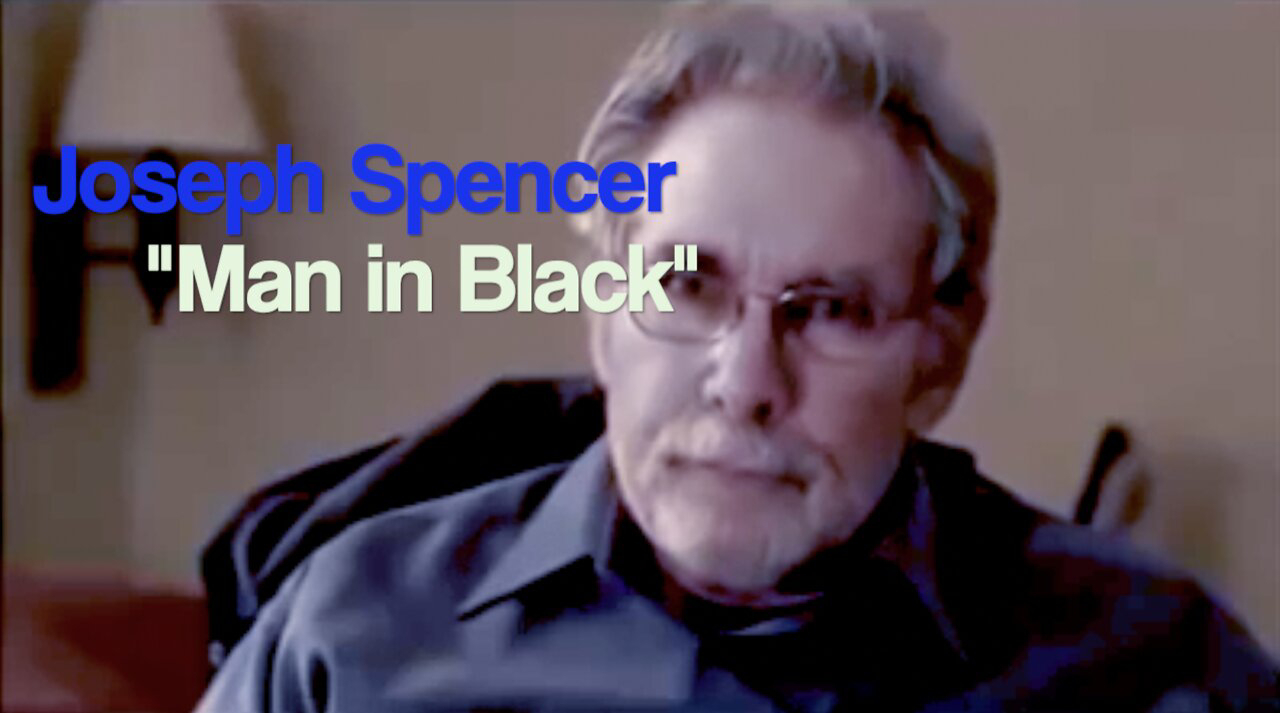The story of ex-CIA operative Joseph Spencer and his alleged involvement with the Men in Black (MIB) has captured the imaginations of conspiracy theorists, UFO enthusiasts, and skeptics alike. Though many argue that Spencer’s story lacks verification and borders on modern myth, it remains one of the more intriguing narratives linking government secrecy, extraterrestrial life, and the shadowy figures known as the Men in Black.
According to claims circulating online, Joseph Spencer was a former CIA operative who began working in intelligence operations in the 1970s. His supposed background includes deep black projects dealing with extraterrestrial technology, reverse engineering, and alien-human interaction. Spencer is said to have come forward near the end of his life to reveal information he had kept secret for decades.
What makes Spencer’s testimony particularly chilling is not only the scope of the claims he makes—but also the implication that agencies like the CIA, in collaboration with entities like the Men in Black, were involved in operations that suppressed knowledge of extraterrestrials through intimidation, manipulation, and, in extreme cases, termination.
The Men in Black have long existed as a staple of UFO lore. Described as mysterious agents who show up after UFO sightings to intimidate or silence witnesses, they are typically characterized by black suits, expressionless demeanors, and a sense of being “not quite human.” While some believe the MIB are human government agents assigned to manage UFO-related incidents, others suspect they may be alien themselves—or hybrid beings working in tandem with shadow governments.
Spencer’s account leans toward the more conspiratorial end of this spectrum. He claimed that the Men in Black were not merely part of the U.S. intelligence infrastructure but were part of a transnational, possibly extraterrestrial alliance designed to control human knowledge of alien contact.
In the recordings and transcripts attributed to Joseph Spencer, he describes working on Project Blue Book and later being involved with more secretive operations under the umbrella of the CIA. He alleged that during his service, he learned of multiple extraterrestrial species visiting Earth, including those with benign intentions and others with malevolent goals.
One of his most disturbing claims is that the Men in Black were used to eliminate threats to the secrecy agenda. According to Spencer, individuals who discovered too much—whether they were civilians, journalists, or even military personnel—were “neutralized” in order to maintain control over the narrative. He claimed to have been present at several such operations and, later in life, expressed remorse over his involvement.
He further claimed that the Men in Black were not human in the traditional sense, describing their movements, speech, and behavior as robotic or programmed. Some even showed signs of being synthetic life forms, possibly created through a fusion of alien and human technology. This echoes reports from other alleged encounters, where witnesses describe the MIB as eerily calm, pale, and emotionally vacant.
Spencer also spoke of the advanced surveillance technologies employed by the CIA and the MIB to monitor potential whistleblowers. These included methods of psychological manipulation, electromagnetic frequency control, and biometric data collection far ahead of what was publicly acknowledged at the time.
This surveillance apparatus, he suggested, was part of a much larger system of control used not only to manage alien contact but also to manipulate public perception, discredit witnesses, and, if necessary, induce mental breakdowns in those who could not be silenced through conventional means.
What set Spencer apart from other whistleblowers was his sense of guilt. He claimed that in his final years, he was plagued by nightmares and flashbacks of operations he participated in. He spoke about people whose deaths were covered up, who were made to look like suicides, accidents, or disappearances. According to his narrative, the Men in Black were the cleaners—the final enforcers when standard misinformation campaigns failed.
He allegedly decided to break his silence after receiving a terminal illness diagnosis, believing he had little to lose and much to confess. He hoped his testimony would encourage others within the intelligence community to come forward and, in his words, “free humanity from the prison of secrecy.”
Critics point out that no hard evidence has been produced to verify Joseph Spencer’s claims. There are no CIA records publicly available confirming his employment, and much of the material attributed to him exists in the form of edited videos, anonymous transcripts, and unverifiable anecdotes.
Some argue that his testimony is a clever fabrication, stitched together from decades of UFO mythology, internet conspiracy forums, and popular culture. Others suggest that whether or not Spencer himself existed, the themes his story touches on—secrecy, fear, control, and the unknown—resonate deeply with a public that increasingly mistrusts institutions.
Despite the lack of concrete proof, Joseph Spencer’s story continues to be cited in documentaries, podcasts, and alternative media circles. The Men in Black, once the stuff of fringe science fiction, have become modern folklore—eerie reminders of how truth and paranoia often blur in the shadows of power.
His tale is less about one man and more about a collective anxiety: the fear that humanity is not at the top of the food chain, and that those in power may be working not for us, but against us—possibly with forces beyond our understanding.

No comments:
Post a Comment